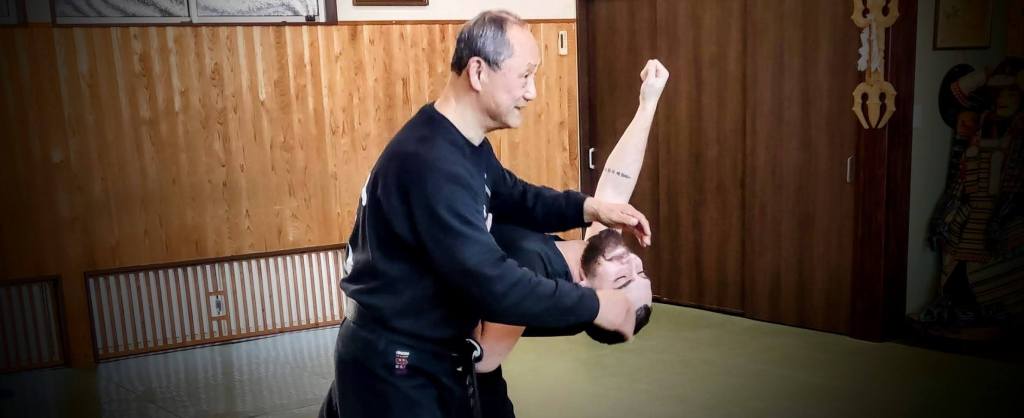
A critical aspect of Budō is to accept the change offered by Nature. We keep adapting our certitudes to new realities. This evolution requires hard work and humility.
As a young teacher, I was sure I knew all the correct answers. And I was critical of the other high-rank teachers. It was more “ego” than “knowledge” with a pinch of immaturity. We all go down the same rabbit hole. The main goal on the path of Budō is to get out of it at some point. Many get lost.
As a teacher, I learned from my mistakes and grew up. As I matured, I wondered why other people, Budō teachers, work colleagues, friends and family often had different opinions than mine. That is when I discovered that everything in life can have multiple truths, all valid to a certain point. No one is always right (yin-yang balance), so I tried to see things through the eyes of the people arguing with me to understand their point of view.
Until recently, I had no name for it, but psychologists have. They call it “reversibility”, which is called “Kagyakusei” in Japanese -please note the gyaku hidden in plain sight. (1)
I have been applying kagyakusei since the turn of the century. I don’t limit its use in the dōjō; I also use it daily. By “Shadowing” the others, you develop a real competitive advantage. Knowing your adversaries, partners or colleagues, you grow into a Bujin. Developing reversible thinking is a chance for your quest on the path of life. (2)
Reversibility is in tune with Sunzi’s Art of War and his famous sentence, “If you know the enemy and know yourself, you need not fear the result of a hundred battles. If you know yourself but not the enemy, for every victory gained, you will also suffer a defeat. You will succumb in every battle if you know neither the enemy nor yourself.” (3)
Seeing the world through your opponent’s eyes becomes second Nature, so ingrained that you don’t think it anymore. At this point, countering Uke’s intentions is very simple.
Around 1920, Jean Piaget, a Swiss psychologist, explained that “reversibility refers to the cognitive recognition that initial conditions can be restored.” He was more interested in child development, but his ideas can apply to other areas. As we all are young padawans on the path, we too are children but in Budō. (4)(5)
A short definition of reversible thinking is “the ability people have to reason things in different directions. That is, the ability to see things from one perspective but also the opposite perspective”. Again, in the dōjō, you can take advantage of your opponent if you develop reversible thinking. I wrote about change in a recent post about kawaru (6). Transformation begins by accepting that others might be right, too. Accepting that others have different visions as valid as yours, even when opposed to yours, makes you more tolerant and nuanced.
Through years of practice, you get it. You have your own beliefs, but someday, someone shows a different truth as valid as yours. You begin to doubt and wonder. Now you have two options. The first one is to dismiss the fact you could be wrong, refuse the evidence, discard the new approach (truth), and stick to your original belief.
The second one is what I consider the Budō approach. It is to accept the other’s input, analyse it, and honestly choose the best option.
Humans tend to go for the first and discard any idea that is not theirs originally. In Budō, we look for what works in and out of the mats. That is the secret of being a Bujin. (7)
Reversible thinking leads you to success.
___________________________________________
1 可逆性 かぎゃくせい reversibility2 from https://homework.study.com/explanation/what-is-reversibility-according-to-piaget.html#:~:text=Per%20Piaget%2C%20reversibility%20refers%20to,returned%20to%20their%20original%20spots.
3 Sunzi: https://www.goodreads.com/quotes/730164-know-the-enemy-and-know-yourself-in-a-hundred-battles
4 Reversible thinking is people’s ability to reason things in different directions. That is the ability to see things from one perspective and the opposite perspective. This ability helps you solve complex problems and see all positions on the spectrum between the two opposites. It’s a kind of thinking that broadens your perspective and makes it easier to solve personal or professional problems. You can deal with your problems more logically and directly, thanks to reversibility.
5 Piaget https://homework.study.com/explanation/what-is-reversibility-according-to-piaget.html#:~:text=Per%20Piaget%2C%20reversibility%20refers%20to,returned%20to%20their%20original%20spots.
6 https://kumablog.org/2023/09/23/kawaru-are-you-giving-a-chance-to-change/
7 武人, bujin: man of valor
